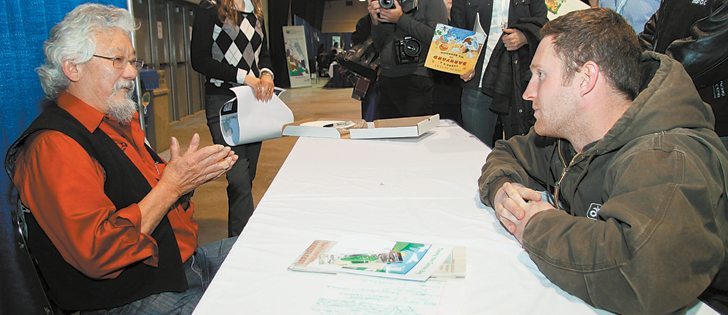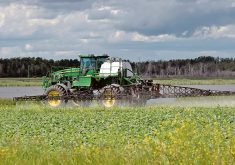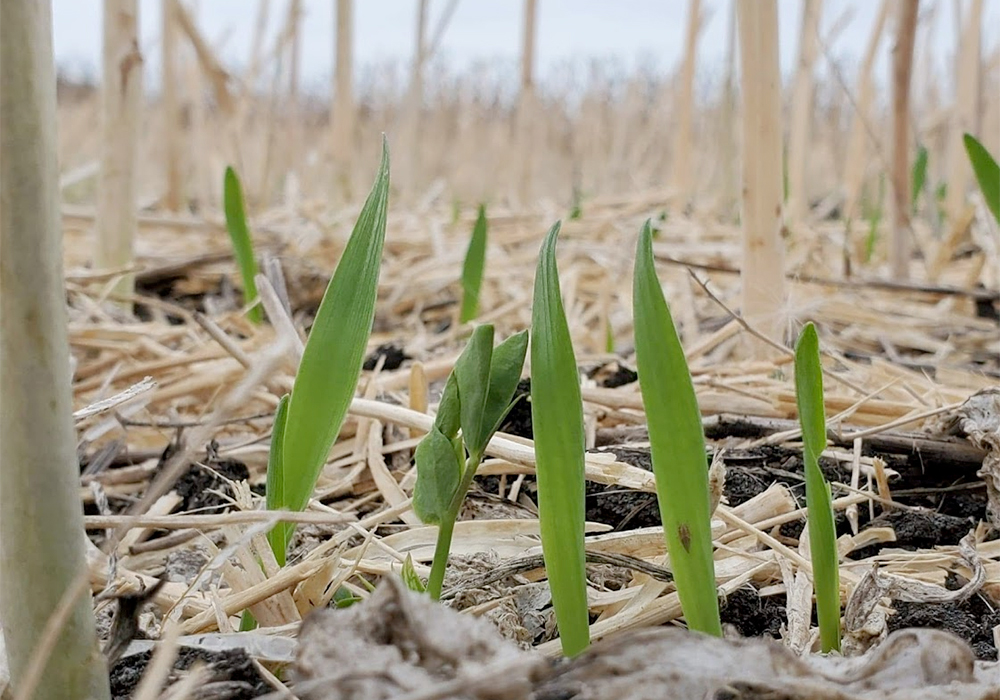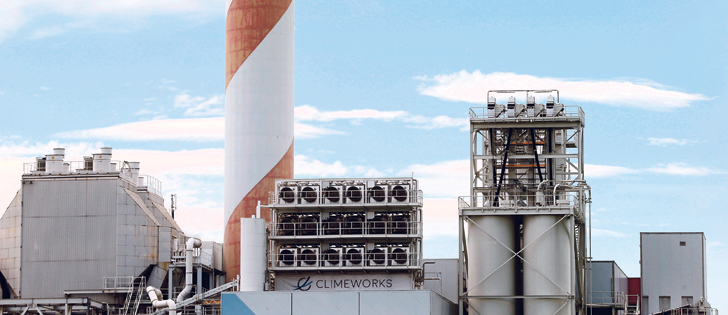Sustainable farming | Environmentalist calls pesticides the ‘dumbest thing’ invented and believes organic agriculture is the way to go
Leaning across a book-signing table from David Suzuki, Sid Stevenson, a young farmer from Kenton, Man., listened carefully to Canada’s most famous environmentalist and his thoughts on modern agriculture.
Suzuki spoke to an audience of 1,000 Dec. 4 at the Manitoba Conservation Districts Association annual meeting in Brandon.
In his keynote speech, while signing books following his presentation and during his talk with Stevenson, Suzuki offered multiple critiques of conventional agriculture.
Well known for his opposition to industrial agriculture, Suzuki said pesticides are the “dumbest thing” that humans ever invented and that most farmers should revert to practices now referred to as organic agriculture.
Read Also

Russian wheat exports start to pick up the pace
Russia has had a slow start for its 2025-26 wheat export program, but the pace is starting to pick up and that is a bearish factor for prices.
“Organic should be conventional (farming), and it was 50 years ago, (but) it’s not anymore and I think that’s tragic because industrial agriculture is simply not sustainable. It is based on converting oil into food,” Suzuki said at the book-signing table.
“It takes six to eight calories of oil to make one calorie of food. That’s crazy. It’s totally unsustainable,” Suzuki added in an aggressive tone, jabbing his finger towards a reporter’s voice recorder.
“I defy any of those conventional farmers, I defy any farmer to tell me that when you are converting oil into food, that this is sustainable.”
Suzuki sighed and shook his head when asked about the need for farmers to increase production to feed nine billion people by 2050.
“You mean to tell me that western farmers have a responsibility to feed people in India, China and Europe? Bullshit,” he said, as about a dozen people waited for a box of his recent book, The Legacy, to be delivered to the table.
“Everybody tells me that the goal of industrial agriculture is to feed the world’s masses. This is (how) Monsanto and all these companies justify genetically modified organisms. The people that need that food, they don’t have the money to pay for it. So don’t tell me that Mon-santo is in the business of making genetically modified food so we can give it away to people in Africa…. They are in the business of making money… it’s just a rationalization to justify what they are doing.”
Despite the radical message and the hard-hitting tone, Stevenson and other farmers who attended Suzuki’s Brandon speech said his comments have merit.
For instance, Stevenson agreed that the existing crop production system isn’t sustainable.
“Consumers are driving what we are producing and are we doing it in a sustainable way? Probably not. Phosphate isn’t going to last forever,” said Stevenson, who is in his 20s and helps run a conventional farm west of Brandon.
As for pesticides, Stevenson said organic farming isn’t perfect because producers must deal with fungus, disease and potential mycotoxin contamination.
On the other hand, conventional farmers may be too dependent on pesticides, he added.
“Maybe we have to seriously consider getting rid of, or reducing the amount of chemicals that we do use. Lots of guys are spraying the same piece of land five or six times per year. That’s pretty intensive, in my opinion.”
Clayton Robins, who farms near Rivers, Man., said people may not like Suzuki’s comments about agriculture, but producers can’t ignore his message or the reality that consumers want organic food.
“It’s pretty hard to have somebody (like Suzuki) come in and tell you what to do … but you still have to listen,” Robins said, adding that many Canadians believe in Suzuki and people with similar messages.
“We (farmers) are a very small percentage of the population, so what the population is saying, we can’t ignore.”
While sharing his thoughts on agriculture at the book-signing table, Suzuki said farmers must adapt to make agriculture more sustainable. That’s fine from Stevenson’s point of view because change is a healthy part of the industry.
“I just think it (farming) is going to keep evolving into something else,” he said. “That’s why agriculture is so exciting and interesting…. It’s (about) opportunity and change. Who wants to keep doing the same thing over and over again?”
David Suzuki delivered an aggressive and energetic speech on the state of the environmental movement during the Manitoba Conservation Districts Association annual meeting in Brandon Dec. 4.
Following his presentation, Suzuki made several blunt observations about modern agriculture:
Pesticides:
The idea of using pesticides, which I think is the dumbest thing that we’ve ever invented. To think we can manage nature with pesticides? I just have to scratch my head.
Biofuel:
It’s absolutely crazy. We need to get more farmland, clear forests and clear land to get food to feed our cars? This is stupid. Absolutely stupid. My grandson is driving around in a bus run by vegetable oil…. I’m saying, what the hell is that?
How we should grow food:
We’ve got to get back to growing food the ways farmers did 60 years ago, where you used green manure and compost, and start using human feces the way the Chinese did 50 years ago. We’ve got to rediscover these things.
Monoculture:
The growing of large amounts of a single species … is very, very dangerous…. When you have certain strains of corn over vast acres, they become very vulnerable to a new parasite or a new disease. We know that diversity allows us to overcome these kinds of threats.
















